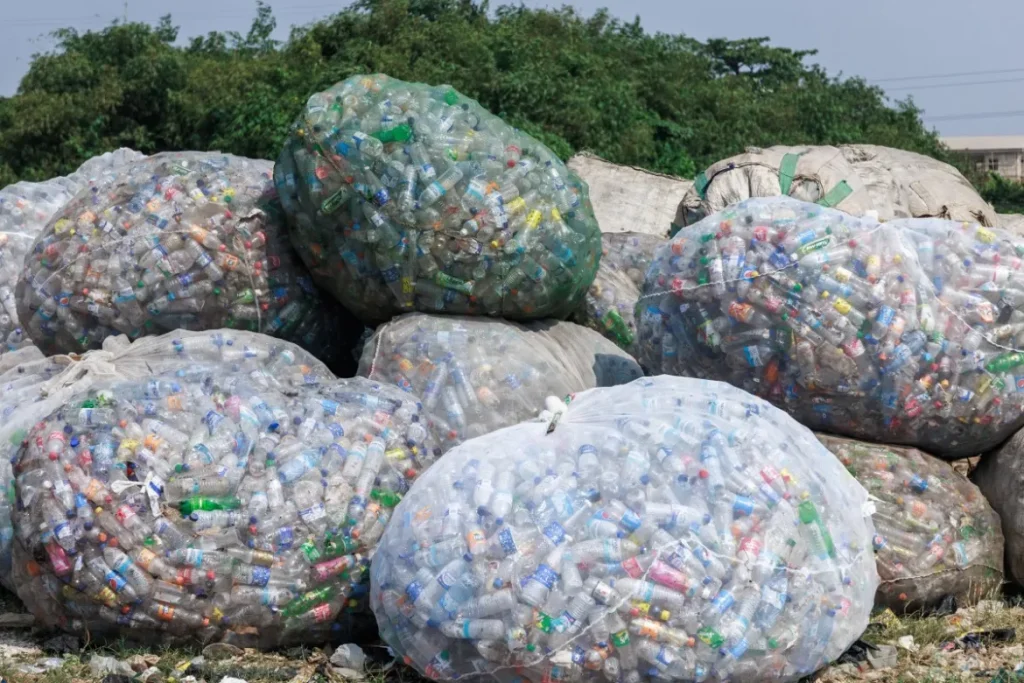Nigerian city Lagos grapples with recent plastic ban

Lagos, one of the most plastic-polluted cities in the world, is struggling to enforce a recent ban on single-use plastics, according to Associated Press on August 13th.
On July 1st, Lagos state authorities imposed a ban in an attempt to reduce the 870,000 tons of plastic waste the bustling city produced in 2024.
However, residents have questioned its effectiveness, citing weak enforcement and the absence of more sustainable alternatives.
Under the new law, the use of single-use plastics such as cutlery, plates, and straws is banned, with offenders running the risk of their businesses being shut down.
The ban is being bypassed despite this threat, as some shops still display Styrofoam packaging on their shelves.
Nigeria is in Geneva this week, along with a host of other countries, to negotiate a landmark United Nations treaty designed to tackle global plastic pollution, a negotiation which broke down last year due to oil-producing countries opposing any limits on plastic production.
Lagos generates approximately 13,000 tonnes of waste daily, with a fifth of that waste being plastic. To compound the issue, the absence of a sufficient waste management system results in these plastics clogging canals, polluting beaches, and exacerbating crippling floods.
Furthermore, the lack of alternative options for low-income vendors and households has shrouded the state government’s strategy in scepticism, and the reliance on low-income Nigerians to help solve the problem has led to a neglect of critical infrastructure.
15% of Nigerian environmental protection funds allocated to disaster-prone areas were used for their intended purposes, and the significant production of plastics without enforcement has amplified the risk of natural disasters.
With the state government obfuscating, there has been a rise in private waste managers and sustainability groups in recent years to manage pollution in Lagos.
These include sorting sites where workers with razor blades scrape labels from plastic soft drink bottles, uncap them, and throw them into different nets to be compressed and sold for recycling.
But there is an emphasis on manufacturers to do more, particularly to ensure that plastics in the environment are collected back and recycled.
Experts have also pleaded for behavioural changes among Lagos residents to ensure the law can be effective and set a good precedent.
However, for that possibility to be realised, feasible and accessible alternatives to plastics are needed.
Associated Press, Maghrebi.org
Want to chase the pulse of North Africa?
Subscribe to receive our FREE weekly PDF magazine












